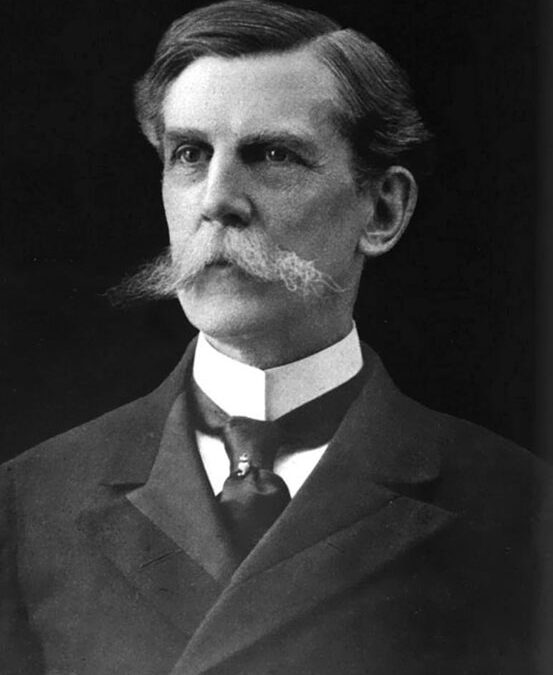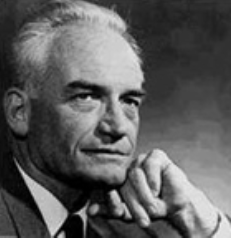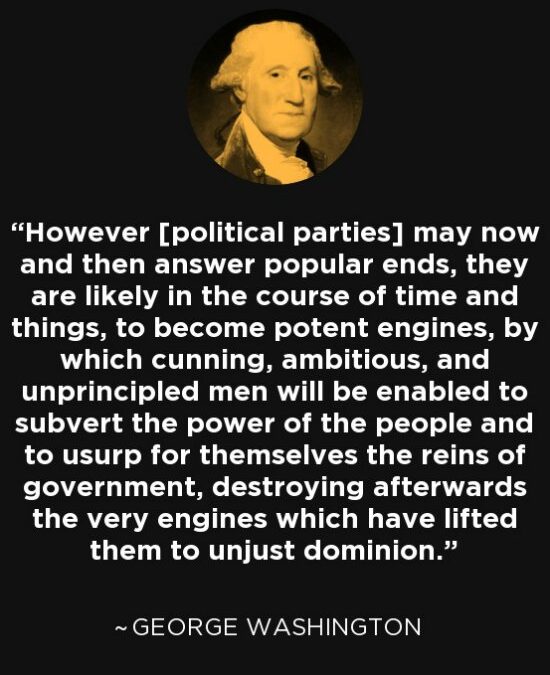
Politics
The other day my wife and I saw American Made, with Tom Cruise. This exciting and scenic but not scary movie showed the CIA drug and gun runners of the “Iran-Contra” affair right there on the big screen. Lots of nice aerial photos exciting without being creepy. And real cuts from old TV broadcasts. The Reagan Administration ran a HUGE drug and weapons trafficking operation at the same time Nancy Reagan was appearing on TV and telling the American people to “Just Say No” to drugs. The film portrayed many takeoffs and landings in Colombia and Nicaragua. It showed the cozy connections among the CIA, Pablo Escobar’s Medellín Cartel, Panama’s highly corrupt, U.S. backed President Noriega and the U.S. backed “Contras.” The Contras were trying to overthrow a popular socialist revolutionary government in Nicaragua. Reagan asked Congress to declare war in Nicaragua, Congress refused, and Reagan and his backers went ahead and started a war anyway. But they had to raise the money for it themselves since Congress wouldn’t appropriate it. They did so by bringing drugs into the U.S. from Latin America, making big bucks off them, and using the money to buy weapons to deliver to the Contras.
This might even be the first major studio movie in American history to actually show totally illegal activities by the President and the U.S. government “security” apparatus. The movie leaves out some key elements of the real life plotline. It doesn’t show the sale of weapons to Iran, an avowed enemy of the U,S., in exchange for hostages. It leaves out the secret deals among the U.S., Israel, and Iran for big weapons in exchange for other hostages. And there is no mention of the earlier deal to supply yet more weapons to Iran in exchange for NOT releasing the hostages from a clandestine helicopter operation in Iran where the copter crashed until after the election between Reagan and Jimmy Carter. Nor does it mention that many of the drugs brought into the U,S. were sold into inner city ghetto areas to keep young male residents stoned out and docile. But even without those details, I found the big-screen showing of this totally illegal operation by the National Security Agency remarkable. In my view, it’s part of how history should be taught. We should show the less admirable sides of what our government has done instead of covering them up, in engaging ways that people will want to watch. (I was, however, surprised by how small the theater audience was. I thought it was a very good film of real historical importance.)

Cultures, Politics, Psychology
“The enemy!” If you passed through the town near my home on a recent weekend you might have seen about two hundred Harleys parked around the local tavern and café. Black leather clad riders lounged among the bikes. You might even have felt your body stiffen as you pegged them as an enemy and your mind told you, “Look at all those dangerous bikers! Who will they attack next? If you felt that way, you probably wouldn’t have stopped to exchange a few friendly words with any of them. You might not have noticed that many had gray or white hair. That’s long past the age at which violence is common. You might never have learned that participants had to pay a fee to join the ride, with proceeds donated to a local charity. And since you saw the picture in your mind instead of the reality behind it, your thoughts and feelings about that gathering probably remained unchanged—and wrong.
That’s one small example of an everyday phenomenon. Many fixed mental, emotional, and body reactions shrink the amount of your mind that is open, receptive, and able to tell what’s going on. Taking advantage of that pattern, a very old manipulative tactic is to create an “enemy” to unite against. An enemy is not just an opponent, since you and a competitor can still be friends. Rather, an enemy is seen as someone irrevocably opposed to you and yours. Your enemy is out to do bad things to you. It’s someone toward whom you feel ill will, animosity, or even hate. Once you’ve classified people as enemies, you can easily be tricked into doing terrible things to them. You may even condone truly evil acts carried out against them by those on “your side.” So for example, presidents, premiers, prime ministers and legislators stir up wars that benefit them or the corporations that line their pockets with campaign contributions. They spend your taxes on weapons and send other people’s children (very seldom their own) to fight and get wounded or die. Several intriguing social psychological studies have shed light on why and how it can be easy to do that.
In the U.S.. the escalated antagonism associated with the most recent presidential election and its aftermath could not please the plutocracy more. As long as black and whites and latinos are hostile to each other, our attention is distracted from the people and tactics in the power elite who are the ones who are really screwing us. We need to step out those old antagonisms and unite to take back the country for the working class and most of the rest of the people. White vs. Black plays right into the hands of the great manipulators. Pretty much the same as political parties. Now we have a president who ran as a “defender of the people” who has turned out to be a defender of he fossil fuel billionaires.
For more information see the experiments by Muzafer and Carolyn Sherif.

Economics, Politics
Social Security — In the United States, of all government programs, it is one of the most successful and best run. Now well-off right wingers are trying to destroy it.
A year-in, year-out right-wing Republican agenda is to take a meat cleaver to the social security payments for old people and the disabled. Why? Because, we are told, “eventually the system will go broke.” You may or may not recall that the system was put in because many of the old and disabled had no source of income, They either lived on the edge of starvation or under bridges or depended their families for support. Depending on their families is the opposite of what the we need today. It causes people to have larger families so they will have someone to support them when they can no longer support themselves. In turn that pushes population upward, Instead, the world now badly needs to stabilize and eventually even reduce population. Resources and are declining and in some places overcrowding is incredible?
Why do the extreme right-wingers relentlessly push this agenda? For four reasons. First, so the rich can get richer than they already are. Too bad for the suckers in the middle and lower classes. It’s a classical plutocratic, anti-democratic classist agenda. The attack has four prongs. 1) Cut taxes on the very very rich so they can get even richer. 2) End the “defined benefit” system that guarantees that people will receive a specified amount no matter what the stock market does. Replace it with a “defined contribution” system that specifies how much people have to pay in each month but leaves how much they’ll get to the tender mercies of the economy is doing. “If the economy goes upward, they could get more than they expected,” say advocates. (But if the economy tanks, they could get zilch, or nearly zilch Tough luck, sucker. But the stockbrokers and insurance companies that would handle the “defined contribution” accounts and their stockholders would make a bundle. How nice! Really? ( like a slick salesman, they hope they can con enough people into supporting the proposals anyway.) 3) Carefully avoid mentioning that small adjustments in how much people contribute to the system now can easily provide them with a dependable defined benefits far into the foreseeable future. And 4) Sshhh — be completely silent about the fact that half the country’s budget goes into war and other military spending. Just one example: the fleet of incredibly expensive new F35s that most of the top generals say is a s a rotten plane. A small cut in unnecessary “defense” (i.e. war – most “defense” spending does nothing at all to protect the U.S. itself) spending could easily make up for projected shortfalls in social security funding.
These are, of course, the truths I see. They’re the way it looks to me. So is anything anybody says or writes about anything. As for those who (usually falsely) claim to have THE truth — beware the snake-oil salesmen!

Cultures, Politics
A few thoughts on the Supreme Court.
One of the issues in this year’s presidential elections is the appointment of new Supreme Court judges. Long ago Plato wrote, “Justice in the life and conduct of the State is possible only as it firs resides in the hearts and souls of the citizens.
That’s an admirable ideal. It is also often violated. French poet, journalist, and novelist Anatole France said, “Justice is the means by which established injustices are sanctioned.” In a similar spirit, U.S. Supreme Court Justice Oliver Wendell Holmes once told a young man who had a case before the court, “This is a court of law, young man, not a court of justice.”
But justice is possible at all only if the Justices aspire to it. Article III, Section I of the U.S. Constitution declares, “The Judges, both of the supreme and inferior courts, shall hold their Offices during good behavior.” “Good behavior” must surely include fairness. Fairness must surely include removing oneself from being a judge in cases where the judge owes something to one of the parties in a case before him. Two recent and present justices have violated this principle. Justices Antonin Scalia and Clarence Thomas have both refused to recuse themselves from cases in which they or their spouses had received substantial sums, primarily in cases that involved the promotion and defense of extreme right wing ideology.
This is odd for two reasons: One, their personal gain from imposing their ideological biases on the country; Two, because the Supreme Court was not meant to “legislate from the bench.” It gave itself that power when John Marshall was the first Supreme Court justice, with no checks or controls on its opinions, and Thomas Jefferson declared himself horrified by this action and precedent.
Failure to recuse in a case that involves a supreme court justice’s conflict of interest must certainly be termed “bad behavior.” The Constitution specifies that a Justice shall hold office “during good behavior,” but unfortunately does not specify a mechanism for removing a judge who engages in bad behavior. And in the country’s entire history, no Supreme Court judge has ever been impeached or otherwise removed for bad behavior.
Therefore it seems clear that a brief Constitutional Amendment is needed that clearly specifies the conditions under which a Justice shall be removed and exactly how he or she shall be removed — and what constitutes an acceptable defense against such removal. With such a provision, Alito and Thomas would both have been off the court long ago.
Furthermore, consider the contradiction between right wing extremists’ screams that the Court should not “legislate from the bench” and their calls for the appointment of a justice to replace Scalia who is at least as ultra right-wing as Scalia himself. That’s not a call for impartial justice, but rather exactly a call for legislation from the bench in accord with their own agenda.
Finally, there is the pathetic disgrace of the Republican majority in the U.S. Senate refusing to engage in confirmation hearings for the President’s nominee to replace Scalia. This complete dereliction of their constitutional duty is unprecedented in the entire history of the United States. There ought to be a provision for the removal from his responsibilities of any Senate leader who acts in such a disreputable manner. When there is more than enough work for nine justices, and one of the eight who remain is checked out much of the time (Thomas), then it is absolutely incumbent on the Senate to put confirm someone in his place. I advocate a provision that if the Senate has failed to act after a specified time, the President’s nominee will automatically assume the position.
For more detailed thoughts about the judiciary and Supreme Court, see “Justice for Whom — Down the River of No Return?” in The Radical Wrong: Lies Our Founding Fathers Never Told Us (online booksellers — e-book or hardcopy)

Buy on Amazon

Environment, Politics, Psychology
When someone studiously avoids noticing what anyone with eyes and ears can see, I call it “The Ostrich Syndrome,” my favorite name for self-deception. Candidate Trump provides examples. An interesting question is whether he actually believes what he says or whether he’ll say anything his audience wants him to hear. Or maybe he’ll say anything and then convince himself he believes it to avoid noticing that he’s lying to both himself and others, and doesn’t want to feel bad about himself due to his dishonesty. Psychologist Leon Festinger dubbed this pattern “cognitive dissonance.” Here are three examples.
This past week he declared that “There is no drought in California.” No matter that my spring that’s been reliable for 45 years dried up and I had to truck water in for a year and a half and then drill a well and put in a new water tank and system, for instance. Or that the ferns on our south-facing hillside were al drying up and dying for the first time ever, and pulled through for now due to this year’s El Nino rains that finally came after many dry years. They usually drop about 2 1/2 times normal rain when they come but this year dropped a blissfully welcome normal rainfall. The previous winter there was ZERO snowpack in the high Sierra where they usually measure multiple feet to estimate what the Spring runoff will be. Trump doesn’t live out here and I guess he just didn’t bother to look at the numbers.
Example Two: The famous proposed U.S.—Mexican Great Wall. For many years now there has been a tunnel for rapid transit beneath San Francisco Bay. Far more ambitious is the tunnel beneath the English Channel between France and England. The Air Force has had an armada of tunnel-boring machine every since it was building ICBM silos. Now it is said to have a remarkable network of underground bases. And not long ago Mexican drug lord “El Chapo’s followers created a mile-long tunnel to break him out of a Mexican jail. The obvious conclusion: Both sides of a Great Wall with Mexico (what a multibillion-dollar windfall for the cement an steel industries!) would resemble colonies of gophers, moles, and prairie dogs with holes popping up everywhere heaven knows how far from the wall. Personally I agree that there is too much immigration too fast to the USA, just judging by the jammed highways and beaches near my home that didn’t used to be that way, but the largest share of it is legal, by-the-rules immigration. A well thought-through national immigration policy that doesn’t put Americans out of work—yes, by all means lets have one—but that proposed Wall is Just Plain Dumb.
Oh, and I hear he wants to give more money to the military, which already spends more than the second-through-eighth highest spending countries in the world. He says the poor old armed forces are badly strapped for cash. I think we’ve heard that before, from Edward Teller (father of the H-bomb) telling Ronald Reagan to dump billions of our tax dollars into outer space (“Star Wars)—which Reagan did. How about spending that money on job-creating environmental restoration projects instead, just as for instance, Franklin D. Roosevelt did?
Pay attention, friends. If something just doesn’t sound right, whoever says it, there’s a good chance that it’s not. It may be a straight-out lie, or a half truth (Benjamin Franklin said, “A half-truth is sometimes a great lie), or self-deception (which Sigmund Freud showed us in detail that most of us do a fair amount of. He even did a some himself, retreating from his observations about child abuse and molestation when his colleagues gave him the cold shoulder about them.) So when you think you’re seeing the Ostrich Syndrome, you probably are.

Economics, Politics
“Any woman should have the right to a safe and legal abortion,” — First Lady Betty Ford, wife of President Gerald Ford
“If men could get pregnant, abortion would be a sacrament.” — Seen on a T-shirt
On March 30, 2016 presidential candidate Donald Trump said that in his America abortion would be banned and “there has to be some sort of legal punishment” for women who have abortions. After fierce criticism from both left and right, he flip-flopped and said that not the women but the doctors who perform the abortions should be punished. Whether fines or prison time he didn’t say. Sounds like Fascism to me. And many Republicans talk about being “libertarian?” Despite their disavowals, Ted Cruz’ and Marco Rubio’s views sound pretty similar to me.
Let’s step back into history and hear what “Mr. Conservative” Barry Goldwater said. “I am frankly sick and tired of the political preachers across this country telling me as a citizen that if I want to be a moral person, I must believe in ‘A,’ ‘B,’ ‘C,’ and ‘D.’ . . . I will fight them every step of the way if they try to dictate their moral convictions to all Americans in the name of ‘conservatism.’ . . . I believe a woman has a right to an abortion, That’s a decision that’s up to a pregnant woman, not up to the pope or some do-gooders on the religious right.” 
In 1964 Democrat Harry S. Truman and Republican Dwight D. Eisenhower served together as honorary co-chairs of Planned Parenthood. That organization actually prevents a huge number of abortions by its extensive contraceptive counseling (which the Vatican and the American politicians who follow its script don’t like either.)
The Religious coalition for Reproductive Choice, a nationwide alliance of more than forty mainstream Protestant, Jewish, and other religious groups agrees. It says, “every woman must have the right to consider all options when she faces a problem pregnancy and the freedom to allow her to come to a decision that is in harmony with her own moral and religious values–without government intrusion. . . . The abortion debate in America is not a conflict between the ‘God-fearing’ and the ‘Godless’ but is instead a struggle between those determined to undermine religious freedom and those determined to preserve it.”
Jesus Christ was totally silent on both contraception and abortion, taking no position about either.
I dislike name-calling –especially in online comments where people hide in anonymity. I’m all for owning your own likes and dislikes instead of pretending that they’re reality. (Unfortunately many people can’t tell the difference.) But I’m pissed off. At the whole ultra-right-wing extremist Republican establishment. And a name that seems to fit some of what I like least about them just popped into my mind: Pseudo-Libertarian Fascism. These days that’s what extremist radical right-wing Republican politics (and that seems to be most of it) seems to boil down to, Unlimited freedom ( equals libertarianism) for big corporations, for the plutocrats (the very rich few who basically run things), and for religious imperialists who want to impose their ideology on everybody else. Meanwhile, they wrap themselves in the flag, play the national anthem loudly, and act like that justifies their views.
Me, I care about your Aunt Sadie and Sister Sue. Even if they’re dumpster divers. For that matter, even if they’re plutocrats. And I don’t want Trump, Cruz, Rubio, or misguided fundamentalist male chauvinists who are contemptuous toward the separation of church and state bending the government to make it force you to follow their agendas.
For the record, here are the views of some of America’s founding fathers about religious views and politics.
Revolutionary war hero Ethan Allen: “While we are under the tyranny of Priests, it will ever be their interest, to invalidate the laws of nature and reason, in order to establish systems incompatible therewith.”
Thomas Jefferson, author of the Declaration of Independence: “The priests have so disfigured the simple religion of Jesus that no one who reads the sophistications they have engrafted on it . . . would conceive these could have been fathered on the sublime preacher of the Sermon on the Mount. . . . It behooves every man who values liberty of conscience for himself to resist invasions of it in the case of others. “
James Madison, a principal writer of the U.S. Constitution: “In no instance have… the churches been guardians of the liberties of the people. . . Religion and government will both exist in greater purity, the less they are mixed together.”
Thomas Paine, patriot and advocate for independence: “I fully and conscientiously believe that it is the will of the Almighty that there should be a diversity of religious opinions among us. . . . My mind is my own church.” And, “Government is not reason; it is not eloquent; it is force. Like fire, it is a dangerous servant and a fearful master.” Let’s keep it out of our private lives.
Abraham Lincoln said, “No man is good enough to govern another without that other’s consent.”
George Washington accompanied his wife Martha to Church but waited outside in the carriage while she went in to Mass.
In recent times, Congresswoman Shirley Chisholm observed, “Women know, and so do many men, that two or three children who are wanted, prepared for, reared amid love and stability, and educated to the limit of their ability will mean more for the future. . . than any number of neglected, hungry, ill-housed and ill-clothed youngsters.”
Finally, opposition to contraception and abortion is a male agenda. Half the people of our nation are women. President John Adams’ wife, First Lady Abigail Adams said, “If particular care and attention is not paid to the ladies, we are determined to foment a rebellion, and will not hold ourselves bound by any laws in which we have no voice, or representation. . . If we mean to have heroes, statesmen and philosophers, we should have learned women. . . . All history and every age exhibit instances of patriotic virtue in the female sex.”
NO POLITICIAN OUGHT TO DARE OPPOSE WOMEN’S SELF-DETERMINATION BY WOMEN OVER THEIR OWN LIVES. IT IS TIME TO RATIFY AN EQUAL-RIGHTS AMENDMENT BY ALL STATES THAT ENSURES THAT NO FUTURE POLITICIAN IN ANY STATE CAN EVER AGAIN PURSUE AN ANTI-WOMAN, ANTI-CONTRACEPTION, ANTI-ABORTION PROGRAM.
Note: Some of the material in this blog is cribbed from my own book, THE RADICAL WRONG: LIES OUR FOUNDING FATHERS NEVER TOLD US — Washington, Jefferson, Lincoln and Others Refute Right-Wing Extremists. It is readily available as an e-book or hardcopy at many online booksellers.
Available on Amazon

Cultures, Economics, Politics
WARNING:Mind-Exploding Outrage (that is, the Trans Pacific Partnership) Ahead,” writes the Hightower Lowdown. “Unbeknownst to most people, a cabal of corporate and political elites (including Presidents Clinton, Bush II, and Obama has stealthily negotiated international trade deals during the past two-plus decades that have fabricated, piece by piece, what now amounts to a privatized world government. It’s a secretive, autocratic, plutocratic, bureaucratic government of, by, and for the multinational corporations.” Its 29 huge chapters include “rules limiting what our domestic governments are permitted to do, plus new rights and privileges for corporations enforced through supranational closed-door tribunals. This adds up to a privately gated ‘government.’”
Wolves in sheep’s clothing? For a long time some folks have been worrying about a “world government.” Well, its closing in on us. And it’s a corpocracy. Obama is also promoting a Trans Atlantic Trade and Investment Partnership (TTIP) with the European Union.
But the TPP is closer. Negotiations have been going on since 2005. It’s almost done. And who wrote it? CEO’s of giant multinational corporations, and their lawyers and lobbyists, in secret, behind closed doors. These include Halliburton, Chevron, PHRA, Comcast, and other such companies you know and love. Congress is being intentionally kept in the dark about what the TPP document says. U.S. Senator Ron Wyden says, “More than two months after receiving the proper security credentials, my staff is still banned from viewing the details of the proposals that USTR is advancing. Economist Robert Reith states, “It is incomprehensible that the leaders of major corporate interests who stand to gain enormous financial benefits . . . are actively involved in the writing of the TPP while at the same time, the elected officials of this country. . have little or no knowledge as to what is in it.”
Shhhh!—the remarkable media blackout
There is an almost complete news blackout about the negotiations. I did find one 2013 article in the Washington Post. Otherwise, silence, Almost everyone I mention it to says, “The TPP—what’s that?” It would change our society forever—but almost no one has even heard of it, despite great daily coverage of such events as a cat rescued from a telephone pole. But then, who owns the media? Maybe some of the folks who are writing the agreement—but that’s not for you and me to know.
What are the benefits—and what aren’t?
All of the above is presented to “We, the People” as a Very Good Thing. The Office of the U.S. Trade Representative touts the TPP as a step “to enhance trade and investment among the TPP partner countries, to promote innovation, economic growth and development, and to support the creation and retention of jobs.” Doesn’t that resemble a replay of NAFTA, of which there have been far more complaints than kudos? Just a for instance—all those new jobs it promised—well, just as many old jobs have dematerialized as the new ones that materialized. Perhaps President Obama has not seen the figures that show that the income gap between the rich and the rest of us has widened since he took office. Not his doing, but reality nonetheless. Economists who have seen leaked drafts of TPP chapters say it would accelerate that trend. Economic growth, yes. But for whom? It would supercharge the growing gap between the great corporations and the very wealthy on one hand and working people and the poor. And between the nastiest of the Great Corporations and their competitors. For instance, in the U.S. Big Coal and Big Oil have already gotten penalties enacted to make biosolar energy less competitive. Some solar panel manufacturers are going broke, Almost everywhere the interests of giant corporations and those of ordinary citizens conflict, the megacorporations manage to slap The People and their smaller business competitors down (despite all those pretty ads you see on TV).
A short list of what’s wrong with the TPP proposal.
- Protections against toxins and other unhealthy ingredients in food are weakened.
- Laws requiring “country of origin” labeling on many foods vanish.
- Freedom of speech is reduced, such as a company putting “Not GMO” on its labels.
- Safety laws can be invalidated.
- A law to protect people or the environment can be struck down, in the Lowdown’s words, simply if it shows that “the expected future profits” of corporate investors might be lower.
- States or countries with environmental or health standards higher than the TPPs can be sued for lost “expected future profits.”
- Present laws to favor local businesses are weakened or vanish. A company can sue a town that wants to keep its local character instead of getting overrun by big chain stores
- The approval process for generic drugs is slowed down.
- Some drugs will be delayed for years, such as one to fight cancer
- It makes it easier for big multinational corporations to swallow up smallr local corporations and companies worldwide.
- S., state and local governments could not have “buy equipment made in USA” when possible policies. The same thing goes for other countries.
- The document is being written in secret behind locked doors.
- Corporate challenges to laws protecting people or the environment are decided by secret tribunals with almost nothing to prevent conflicts of interest.
- A decision by such a tribunal is FINAL, with no appeal possible
- The conflict of interest is blatant. It is being written by those who stand to gain from it.
- All aspects of its negotiation, adoption, and implementation are designed to prevent citizen participation.
- It is written in obtuse, complicated language that appears designed to confuse.
The Devil in Disguise: Fast Track
Only one U.S. Congressman, Colorado Republican Hank Brown, read the full text of the 1994 GATT agreement. He had previously favored the agreement, but changed his mind after reading it. He didn’t have much time to read it. In 1974 President “Tricky Dick” Nixon devised a uniquely undemocratic ploy to bypass congressional consultation, one that appears unconstitutional to me, and conned congress into buying it. The U.S. Constitution charges congress with giving advice and consent on trade agreements. It says,
[The President] shall have power, by and with the Advice and Consent of the Senate, to make Treaties, provided two thirds of the senators present concur.
Fast Track requires congress to act on legislation sent to it by the White House with a simple “yes” or “no” response, and no chance to offer any amendments, It never goes to congressional committees. It must be voted on within 90 days, with minimal debate. To me that doesn’t look much like the “Advice of the Senate” required by the Constitution. The Constitution also says,
All treaties made, or which shall be made, under the authority of the United States, shall be the supreme law of the land; and the judges in every state shall be bound thereby, anything in the constitution of laws of any state to the contrary notwithstanding. (Article VI, Clause II)
Secretary of State John Foster Dulles reinforced that point: “Treaties make international law and also they make domestic law. Under our constitution, treaties become the supreme law of the land.
President Bush the First lobbied heavily to renew Fast Track, which had expired. With its assistance, President Clinton managed to get NAFTA approved. It expired in 2007. Now Obama is asking congress to resurrect it for the TPP deliberations. In other words, congress would vote for or against whatever the corporate lobbyists put into the Treaty.
Trade is not an end in itself but a means to other ends. To declare that completely unrestricted trade is appropriate everywhere, in all circumstances, is like saying, “Penicillin is a great drug, so lets use it to cure everything.” France knows all this. It has “stubbornly” refused to lower certain tariff barriers that protect its farmers, because its farms don’t just provide food, but they’re part of the whole structure of French society.
The Lowdown goes one step farther. It says, “This is not a decision about trade—the TPP represents a tectonic shift in public policy that would radically alter the fundamental structure of our society and thrust a global corporate plutocracy on us. Shouldn’t we have something to say about that?
It looks to me like leaked sections of the agreement show that the god its drafters worship above all others is to gain the maximum possible profits for their corporations. Period. That attitude takes us along a path likely to end in a world where any form of democracy can exist. With the multinationals calling the shots, I do not imagine that the proposed treaty would be more advantageous for the smaller, poorer countries that would be part of it than for the U.S., and typically much less so.
“There are always politicians and technocrats ready to show that the invasion of ‘industrializing’ foreign capital benefits the area invaded. In this version, the new-model imperialism comes on a genuinely civilizing mission, is a blessing to the dominated countries, and the true-love declarations by the dominant power of the moment are its real intentions. Guilty consciences are thus relieved of the need for alibis, for no one is guilty: today imperialism radiates technology and progress, and even the use of this old, unpleasant word to define it is in bad taste.” Eduardo Galeano, Uruguayan journalist and author.
Instead of Fast Track, I suggest a SLOW TRACK procedure in which the entire draft that is to be submitted to congress must be posted on both White House and all Congressional websites so that every interested citizen can read it and communicate concerns and suggestions to his or her congresspersons. Perhaps it could be put up at the rate of 50 pages a week, giving people time to digest it—and perhaps meet and discuss it in community groups. How about moving toward democracy rather than away from it? After all, it has been ten years since TPP was proposed. If there is going to be one, it ought to be one that benefits the people and protects the earth.
What you can do now: Derail FAST TRACK. The vote may be as soon as March. The first link below will tell you which congressperson to contact if you’re not sure.
See also www.cwa-union.org/no-tpp
http://www.hightowerlowdown.org/ (January 2015)

Cultures, Politics
George Washington refused to join or take part in any political party. He deeply distrusted them. He said explicitly that parties intensify antagonisms and make wise government more difficult. “The alternate domination of one faction over another, sharpened by the spirit of revenge, natural to party dissension, which in different ages and countries has perpetrated the most horrid enormities, is itself a frightful despotism.” We see that today.
Indeed, George Washington REALLY disliked parties. He wrote, “However [political parties] may now and then answer popular ends, they are likely in the course of time and things, to become potent engines, by which cunning, ambitious, and unprincipled men will be enabled to subvert the power of the people and to usurp for themselves the reins of government . . . which have lifted them to unjust dominion. . . The common and continual mischiefs of the spirit of party are sufficient to make it the interest and duty of a wise people to discourage and restrain it. It serves always to distract the public councils, and enfeeble the public administration. It agitates the community with ill founded jealousies and false alarms; kindles the animosity of one part against another; foments occasionally riot and insurrection, and opens the odor to foreign influence and corruption, which find a facilitated access to the government through the channel of party passions.”
When there is an extreme (or in recent years, sometimes even fanatical) commitment to a political party or faction of a party,, its members all too easily forget about justice, decency, reason, humanity, kindness, and the rest of the finer human virtues. They WANT TO WIN AND RULE, and too often all else takes second place.
Even with his comments above, Washington was not finished. He added, “All obstructions to the execution of the laws . . . serve to organize factions, to give it an artificial and extraordinary force. [This puts] in place of the delegated will of the nation, the will of a party, often a small, but artful and enterprising minority of the community; and, according to the will of different parties, to make the public administration the mirror of the ill-concerted and incongruous projects of faction, rather than the organ of consistent and wholesome plans, digested by common counsels, and modified by mutual interests.”
We see it all too well today. (We may note that the Constitution says nothing about political parties.) What Washington, Lincoln, and others feared, writes philosopher Jacob Needleman, was “the spirit of party.” This meant the attitude that one’s own faction or part is more important than the whole, or what came to the same thing, and that the best interests of the whole is the same as the interests and program of one’s party. In other words, “We know best, and you shut up and do what we say.” The “spirit of party” meant the commitment to . . . overcome or even destroy, rather than learn from the opposition. (This view, of course, is intimately related to the adversarial structure of our legal system, in which prosecutors and defense attorneys get ahead not by ensuring that the truth is revealed and justice is served but by winning the case, regardless of what happens to be true and just. We saw that writ large when a 5-4 Republican majority of the Supreme Court appointed George W. Bush present rather than letting the votes from a heavily Democratic district, which surely have thrown Florida and the election to Al Gore. We see it now when a 5-4 majority declares that unlimited spending in campaigns by incredible rich people and corporations is the same as free speech. We see it when the same party-line majority maintains that a corporation “is a person.” That’s a bid odd, isn’t it? A tanker car is not a person. A diesel engine is not a person. How than can many tanker cars and many engines that are part of a corporation be a person. Obviously they are not. Obviously the Court is “legislating” for the partisan interests of its party rather than acting with the impartiality that is supposedly a court’s hallmark.
Washington sums up one big reason why such miscarriages of justice occur is rules that govern elections as well as in electoral politics in a sentence: “Few men have the virtue to withstand the highest bidder.” Because recent and present politically partisan Supreme Court majorities ( all of the same party) consistently supports the highest bidder, democracy is gravely endangered.. It is most gravely endangered by the radically ideological partisans of the extreme right who have limitless funds to spend advancing their “spirit of party” rather than the good of the nation. Their habitual practice of blaming “the other” for everything almost always steers us onto the darker path. Hatriots are not patriots, but pseudo-patriots. Patriots have at least some sense of common purpose with their fellow citizens. If you’re inciting people to hate those in the other party, the other race, the other country, you can sing the anthem as loud as you like and wrap yourself in the flag so tightly that you can’t see out, but you’re no patriot.
Historian James Thomas Flexner tells us that Washington “deplored the adversary theory which sees government as a tug of war between the holders of opposite views, one side eventually vanquishing the other. Washington saw the national capital as a place where men came together not to tussle but to reconcile disagreements. . . . Washington’s own greatest mental gift was to be able to bore down through partial arguments to the fundamental principles on which everyone could agree.” George Washington’s democracy, says Jacob Needleman, “is not the freedom to try to destroy each other physically or philosophically or morally, but the freedom to bring one’s own best thought together with one’s best effort to listen and attend to the other. ‘The aim is not to reach the pale and crooked version of mutual accommodation that we call “compromise’ . . . but to discover a more comprehensive intelligence that allows each part and each partial truth to take its proper and necessary place in the life of the whole. . . .To have unity. . . one must struggle to become free from the false . . . separation that is represented by what we are referring to as the spirit of party.”
Former Vice President Walter Mondale recalls that when he served in the Senate in the 1970s, “debates were always heated. But I don’t think they had the kind of nastiness they do today. We need to lighten it up . . . to find a way of talking with each other. I’ve won and I’ve lost. And I like winning better. [But] when you run for office in a democracy . . . one person wins and one person loses. I think it’s important that we do it with civility, with respect.”
We would be a better, more decent, stronger nation by returning to George Washington’s view of democratic discourse. And by each thinking for ourselves rather than parroting the beliefs and attitudes that our party bosses or our friends or family members who are ideological zombies lost in Zombie-land want us to accept.

Economics, Politics
“Half a truth is often a great lie,” said Benjamin Franklin. In the U.S. we hear both the Republicans and the Democrats promising that their employment solutions will put people back to work, bring full employment, and ensure prosperity for all. Really? I have yet to hear any party or any business person or organization who has a real solution. S
Some policies make the job picture worse. For example, when they think no one is looking, Republicans sometimes actually say they want to give the country a good zap of unemployment from time to time to keep wages down and help break the backs of those unions that remain. When he was President Richard Nixon said it very explicitly. Party members since his time have acted in ways which show that they want just enough of a rise in employment to get elected. If they’re already in office, they want employment just high enough level to keep them elected. They certainly don’t want a rise in employment in West Virginia, where it might interfere with coal company practices of turning beautiful mountains into wastelands by blowing the tops off mountains to expose coals seams. Mining employment in West Virginia is one-tenth what it used to be when miners brought out coal from underground and God’s Own Country was not being turned into the Devil’s Wasteland. Also, all across the country in both public and private sectors full-time jobs are getting pulled apart into pieces that can be filled by part-time employees.
In regard to jobs, the Democrats are less hypocritical, more idealistic, and also pathetically naïve if they actually believe their own rhetoric. Yes, they do want less unemployment, jobs for more people, more job training, better jobs for the folks who have slipped from manufacturing into making fast food burgers for a fraction of their former pay. They would like to change that, and have less offshoring of jobs, and on.
But neither party says much about basic changes in society, technology, and economic organization that are responsible for today’s trends: automation, robotization, and the massive transfer of productive activity from labor to capital. That’s part of why the economic gap between rich and poor keeps growing. To be sure, the sledgehammers with which Ronald Reagan and George W. Bush smashed into little pieces much of the equalizing effect of Franklin D. Roosevelt’s graduated income tax and other measures to help the less fortunate did their part. But take all that out of the equation and there would still be Trouble in River City. It used to be that when you picked up your phone to call someone you got a human being on the other end. Now a few people with nice voices are hired to created digital recordings that allow one person to do the work a thousand used to do. It used to be that rapid transit cars had a human being sitting up front running them. Now a few people in a control room run enormous systems by remote control. It used to be that longshoremen actually loaded cargo into ships. Now a tiny fraction of their number run giant cranes that move containers from trucks and trains onto and off of ships. And so on. Some of this is great. Robot welders on auto assembly lines tend to do a better job than people, and so too with numerous other functions. But not all. When I go to the supermarket or drugstore I prefer to wait my turn in line than walk right up to the self-checkout machine. I’d rather not contribute to throwing another person out of work. And I certainly wish the Golden Gate Bridge District directors had seen fit to keep at least one lane operated by a human being who can accept cash instead of automating them all. You can surely think of your own examples where work that used to be done by people is now done by machines. That eliminates such matters as setting up pension funds and paying medical benefits and overtime. Most of all, machines do not organize themselves to demand that an enterprise be run in a more decent, humane, environmentally sound manner. They just do what they’re programmed to do.
One more detail. Every time a machine replaces a person, it is a transfer of productive capacity from Labor to Capital. Somebody owns that capital, and it’s probably not a worker. It’s a private equity company, or a corporation (or sometimes even a government agency.) That means more money in the pockets of capitalists and less in the pockets and purses of working men and women who lose their jobs. Meanwhile, immigration brings in more competition for the jobs that remain. In some regions, that’s sensible, because needed skilled workers are not available and can’t be trained rapidly enough, but can be hired from elsewhere. But in many cases, immigration that pushes up population makes it harder for people who lose their jobs to find new ones.
If you read Adam Smith, who is widely cited as the High Priest of Capitalism, you’ll find that his views were nothing like those of todays ultra right-wing extremists. He was concerned about working people and jobs. He disliked the nasty tactics and conspiracies of some companies’ owners or executives. Today’s capitalism differs radically from his views. Its essence is the ideological principle that making the most money possible is the goal to be pursued above all others, and that the few at the top of the ladder are entitled to everything they can get – no matter how many are harmed by their actions or how severe the environmental destruction. In many places even the law requires profit maximization. And if quarterly profits drop, “the market” –i.e. investors who want maximum profits, punish the company and may even try to take it over. So what’s the so-called “bottom line” here? It is that contemporary capitalism, with its imperialistic and monopolistic tendencies, will never provide as many good jobs as are needed regardless of whether Republicans or Democrats are running things. Indeed, “unlikely” is an understatement. As long as automation and robotization continue on anything like their present course, unwanted unemployment is guaranteed and will probably rise. Is there a solution? Will anything work?
- The one thing I see that appears likely to work, and that is working in some places already, is a variety of economic forms and solutions working cooperatively together.
- Capitalism will have to return to its roots. (When the U.S. was young, to be chartered as a company the owners-to-be had to demonstrate that it would serve some public good. Thomas Jefferson and James Madison were so afraid that the economy would develop much as it has done that they tried to add an eleventh amendment to the Bill of Rights that would keep corporations from going out of control, telling lies and damaging the public interest as many do today. It was voted down by a group of prosperous and powerful members of the Constitutional Convention.)
- Cooperative ownership and endeavor will play a much large part in the world’s economies. Experiments in this direction are already underway.
- All portions of international trade agreements that are injurious to workers or other people or that prohibit any nation or region from protecting its environment will automatically be null and void.
- All international trade agreements will have to be made in the light of day, with citizens of the concerned countries and reporters of diverse viewpoints able to be present and report what is happening. No more secret, closed-door negotiations by corporate leaders appointed by their governments as “trade representatives.”
- The discipline of economics will have to be transformed from figuring out how the few can make the most to figuring out how to configure economies at every level into forms that will be beneficial for most citizens and protect ecosystems.
- Everywhere, people in local communities will begin meeting together to develop new forms of production, exchange, and consumption that will bring the communities together. (This is quite different from the present system in which a few wealthy and powerful citizens put up the money to get candidates who will favor their interests elected, so that the city of county is governed with the intent of enriching them even more.
This blog entry is obviously not a comprehensive answer to the problems of jobs, employment, and economic organization. Today, no one and no party has such an answer. Rather, it offers my reflections and seeks to provoke your own reflections. Collectively we need a transformed sense of purpose and direction in our economic endeavors so that they will serve both the material and the deeper psycho-spiritual interests of all the people. To provide those “good jobs” the politicians talk about, we need to start deeply rethinking and transforming the very structure of our economy.
Economics, Environment, Politics, Psychology, Spirit
Mental flexibility and rigidity is a crucial matter. Either one is usually both an attitude and a habit. Yesterday as I was reading posts about the polar vortex’s possible contributions to the January 2014 extreme colds and storms in the Eastern U.S., (and much less publicized, climate scientists’ opinions that it may also be causing the blocking high pressure area off northern California that has given the usually rainy and foggy winters of the redwood country less rain in the last year than the desert cities of San Diego and Phoenix, which has caused my spring to stop running), I noticed something interesting. The intelligent and thoughtful comments tended to include a lot of detail and information about diverse phenomena related to climate change, whereas the boorish comments that insulted previous posters, primarily by people who denied that any changes in climate are actually occurring, were for the most part devoid of any knowledge or details about real phenomena. They just parroted opinions of others who thought similarly.
As I read, it occurred to me that those who posted almost all the comments could easily be labelled “INQUIRERS” or “DENYERS.” An Inquirer is somone who actively seeks out diverse best available information about something, usually from a variety of different kinds of sources and in considerable detail. A Denier is someone who forms opinions based on repeating what others have said and does not go looking for additional information in anything resembling an openminded way. They know what they believe and don’t want anyone to question it. Reminds me of a time many years ago when in the middle of a discussion a friend said, “Victor, you really don’t like to be contradicted, do you/” It hit me like a brick. I had viewed myself as SO OPENMINDED. But what she said was so true at that moment in that context that I had to admit it. It was the beginning of a long-term change in attitude. Now when I find myself stubbornly holding onto some belief or opinion despite what others say, my discipline is to NOTICE THAT I’M DOING SO and then say something like, “Of course, I may be mistaken.”
For all you denyers out there, please understand this: The main thing you are doing is defending your self-centered egos. You believe that you are not an OK person if your belief about something is wrong. The reality is that there is no dishonor in changing your mind, in acknowledging that you were mistaken about something. Dishonor lies in snotty, judgmental put-downs of others who disagree with you. THAT’s small minded. THAT closes down your ability to grow, to change, to discover. If that’s not the case with you, you can ask yourself: “What’s in it for you to hang on so tightly to you attitude, belief, opinion, or preconception?” What about it are you attached to? The approval of others who are parroting the same opinions? Or . . .? Doing the best you can to answer that question in an honest way could be an important step in your life.
Of course my classification of online commenters, and for that matter everybody else, into Inquirers and Denyers is urealistically dualistic. Actually people are not just one or the other, but hold attitudes along a continuum that runs from flexible openmindedness to rigid clinging to their preconceptions. Many people fall somewhere in the middle. It appears to me that fewer of those in the middle tend to make online comments than Inquirers and Denyers. And some Inquirers dig up a lot of information to support their views but are nonetheless rigid and judgmental. Little in the realm of the human psyche is totally cut-and-dried, either THIS or THAT. (Back to Venn Diagrams and mathematical set theory for the demonstration.) But in the clouds of bloggers, comment posters, and purveyors of editorial opinions (so labeled or disguised as so-called “news”), an great many of the aforementioned authors sound like either Inquirers or Denyers.
Note: I have used the spelling “denyers” instead of “deniers” because the dictionary defines the latter as “a unit of weight by which the fineness of silk, rayon, or nylon yarn is measured,” and “a French coin, equal to one twelfth of a sou, which was withdrawn from use in the 19th century.”











